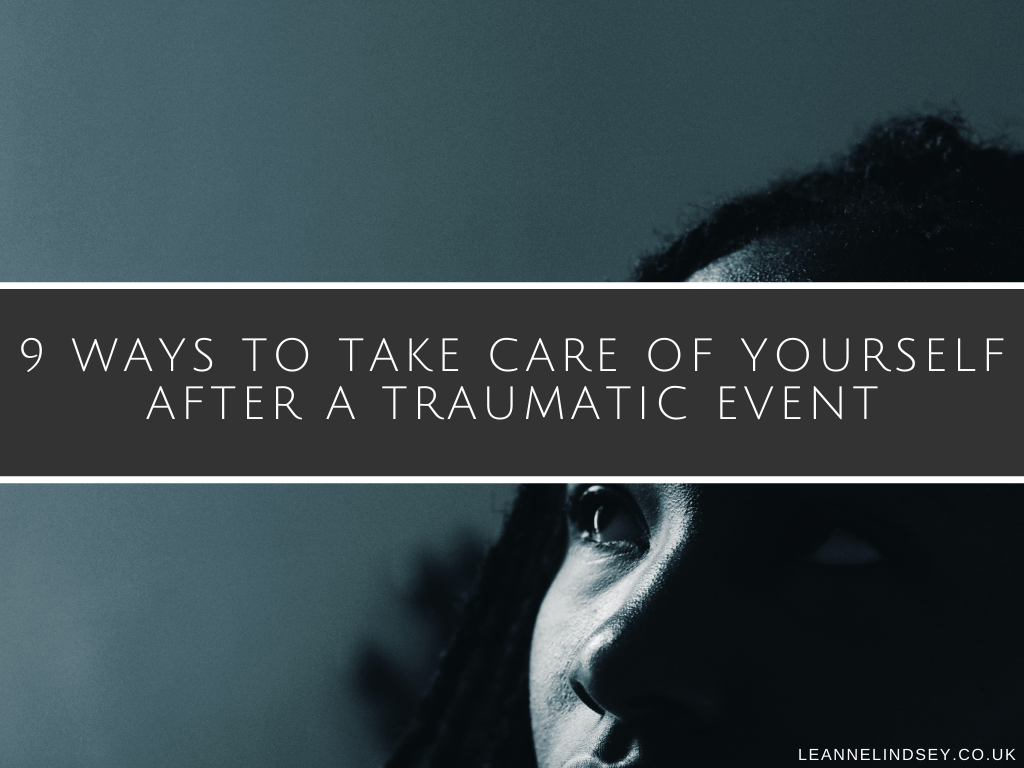
It is possible to be impacted by a disturbing or particularly distressing event even if you are not involved in it directly.
You can also experience trauma symptoms and not even be aware that they are linked.
Symptoms of trauma can show up in a number of ways and can surface anywhere from a couple of days to a few months after the event.
Possible symptoms after a traumatic event can include:
- Trouble sleeping
- Agitation
- Fatigue
- Lack of concentration
- Anxiety
- Irritability
- Restlessness
- Anger
- Guilt
- Heightened fear and hypervigilance
- Feeling disconnected, sad or helpless
- Withdrawal from others
- Muscle tension
- Headaches
- Nausea
Whenever something traumatic happens on a social, domestic or global scale, I often battle with guilt.
I want to show my support for those affected and express my pain or outrage in an effective way, but at the same time, I find myself feeling overwhelmed and exhausted by it.
I feel that I should be doing more but I know that for the sake of maintaining my emotional and mental wellbeing, I am unable to.
How to Take Care of Yourself After a Traumatic Event
If you can relate or have been experiencing any of the symptoms listed above, here are 9 ways that you can take care of yourself after a traumatic event:
1. Minimise media exposure
With smartphones, most of us are constantly connected to social media and the latest updates.
Be mindful of how much time you are spending reading reports, watching the news and scrolling through your timelines.
Avoid checking updates before you go to bed or as soon as you wake up.
Also, consider turning off any alerts you have set up so you are in control of when you are exposed to any news.
2. Express your emotions
Give yourself permission to cry, rage and otherwise express your feelings in a safe and healthy environment.
This could be with loved ones or friends.
Alternatively, as I always say, journaling is an excellent way to share how you’re feeling without fear of judgement or conflict.
Avoid using alcohol or recreational drugs to numb your feelings.
3. Take care of your physical well-being
Prioritise deep rest and sufficient sleep.
Eat well and regularly. Avoid excess caffeine, sugar, alcohol and fast food.
Exercise and move more. If you’re having trouble sleeping or experiencing headaches or muscle tension, something like yoga or Pilates could be a good option.
Spend time outside in nature and get as much natural light as possible.
4. Reduce stress
Do things that help you to relax, feel nurtured, allow you to regain peace of mind and bring you joy.
This could be taking a shower or a long soak in the bath. Or it could be meditation, getting lost in a good book or watching comedies.
Create an environment of peace and tranquillity wherever you are, whenever possible.
5. Spend time with loved ones
After a traumatic event, you may find you want to spend more time alone.
If you need to take time for yourself, do that but be careful not to isolate yourself.
Find safe spaces where you can talk about how you are feeling and how the specific event has affected you as much as you need to.
Reach out to people you trust and feel supported by and spend quality time with them.
Most importantly, avoid people who drain your energy and trigger feelings of anxiety or discomfort.
6. Maintain your normal routine
Traumatic events can create a feeling of uncertainty.
Continuing with your normal daily activities provides structure and familiarity which can help you to regain a sense of security and stability.
At the same time, be mindful of anything that induces feelings of overwhelm or anxiety and scale back where necessary.
7. Become aware of your emotional triggers
Perhaps it’s watching the news, listening to certain songs or scrolling through social media.
There will be things that cause difficult and painful emotions to surface.
It will not always be possible to control or prevent this from happening, but becoming more aware of your emotional triggers can help you to manage any unexpected feelings as and when they arise.
8. Help out
Distressing events can leave you feeling helpless, especially when you are not directly involved.
Find a way to help the cause through volunteering, raising awareness, donating money or other means.
If you are unable to help the cause directly, find something else you can connect with that gives you a sense of meaning and purpose.
9. Get professional support if necessary
Sometimes you do all of the things above and it still isn’t enough.
Please do not suffer in silence.
There are professionals, helplines and support groups who are trained to help people dealing with the effects of trauma.
If you need to, reach out to them. They are there to help.
Unfortunately, we live in a world where terrible things will continue to happen.
It is important therefore that you have strategies that you can use to take care of yourself after a traumatic event and support your healing.
I encourage you to bookmark this post so you can always come back to it and share it with friends and family so they too can prioritise their own self-care.




This is such an important piece right now. Every point is valid and essential to the process of healing.